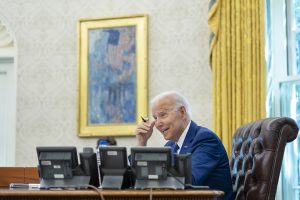For 10 days in November, the world’s diplomatic attention will be squarely on Southeast Asia, with the region set to host three major diplomatic gatherings. These include the Group of 20 (G-20) Summit, which will bring together leaders from the world’s 20 largest economies on November 15-16 in Bali, Indonesia, and the annual summit of Asia-Pacific Economic Cooperation (APEC), which will be held on November 18-19 in Bangkok, Thailand.
Both of these will follow the Association of Southeast Asian Nations (ASEAN) summit and related meetings, which will be held in Phnom Penh on November 8-13 and include the East Asia Summit, a major international gathering.
As expected, the U.S. government this week confirmed President Joe Biden’s attendance at two of the three meetings. In a statement issued Friday, the White House said that after attending the COP27 climate change summit in Egypt, Biden will travel to Cambodia to attend the U.S.-ASEAN Summit of Southeast Asian leaders and the East Asia Summit. He will then fly on to Indonesia for the G-20 Summit.
The meeting in Cambodia will be the first ASEAN meeting that Biden has attended in person after last year’s meetings were held remotely due to the COVID-19 pandemic. He will also become only the second sitting U.S. president to visit the country, after President Barack Obama (also for an ASEAN meeting) in 2012. While in Cambodia, the White House said, Biden will “underscore the importance of U.S.-ASEAN cooperation in ensuring security and prosperity in the region, and the wellbeing of our combined one billion people.” This will likely involve a lot of reference to ASEAN’s important position in Washington’s “Indo-Pacific” strategy, and an emphasis on its prized position of “centrality” in Asian diplomacy.
The G-20 Summit in Bali is likely to dramatize the growing global strategic rifts between the U.S. and its partners on the one hand, and China and Russia on the other. The summit would offer Biden his first opportunity as president to meet face-to-face with China’s leader Xi Jinping and will potentially put him in the same room with Russian President Vladimir Putin. Xi and Putin have yet to confirm their attendance, but both are expected to attend.
According to the White House, Biden will “work with G-20 partners to address key challenges such as climate change, the global impact of Putin’s war on Ukraine, including on energy and food security and affordability, and a range of other priorities important to the global economic recovery.” Given the length of his trip – the summit only begins on November 15, but Biden will arrive in the country on the 13th – it is also likely that he will hold a bilateral meeting with Indonesian President Joko Widodo. (Or perhaps it could give him time for a side-trip to Vietnam?)
However, Biden will not attend the APEC Summit in Bangkok, instead sending Kamala Harris in his place, who will “underscore the U.S. commitment to economic cooperation in the Indo-Pacific region.” This decision has prompted some consternation in official circles in Thailand but is probably inevitable given the proximity of so many high-level summits. Harris will then pay a visit to the Philippines, the White House said, where she will meet with government leaders and civil society representatives, and “re-affirm and strengthen the U.S.-Philippines Alliance and underscore the breadth of our cooperation as friends, partners, and allies.”
The president’s Southeast Asian tour comes at a crucial time in U.S. politics, with mid-term elections set to be held on November 8, with results that would well bear on the course of Washington’s policy, from its support to Ukraine’s war against Russia to its increasingly confrontational policy toward China.

































